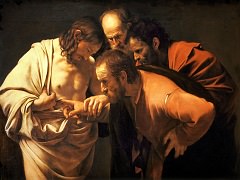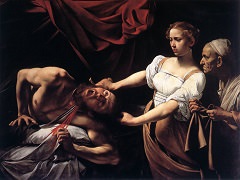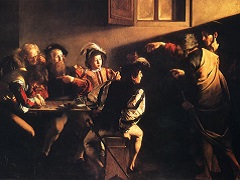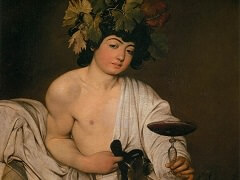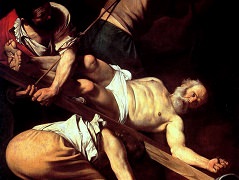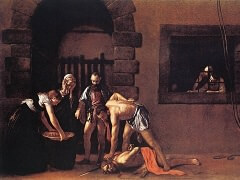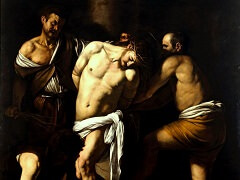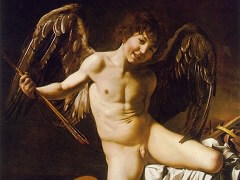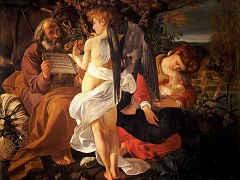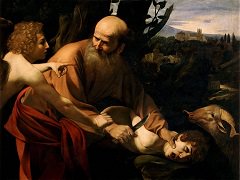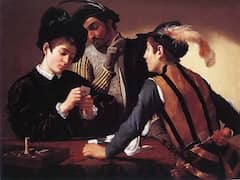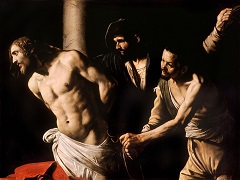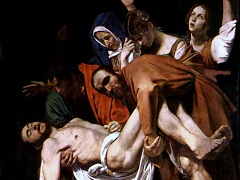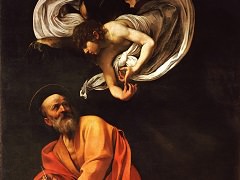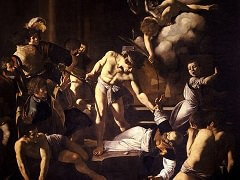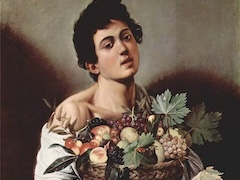Portrait of Maffeo Barberini, by Caravaggio
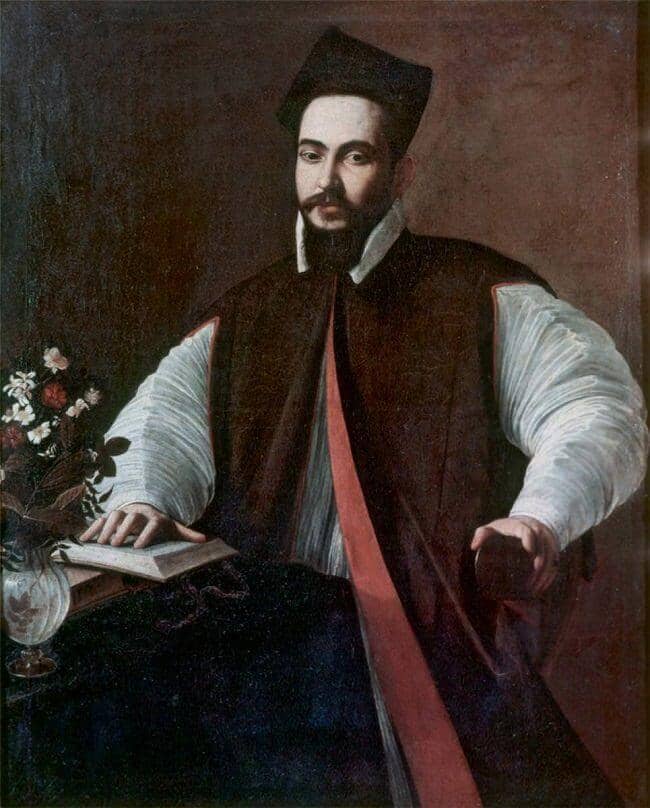
Maffeo Barberini, born in 1568 and pope from 1623 to 1644 as Urban VIII, came from a well-established Florentine family and was, during the 1590s, in the process of building his career at the papal Curia in Rome, becoming Protonotaro Apostolico in 1593 and Chierico di Camera in 1598. Mancini (1619-25) referred to portraits painted for him by Caravaggio, and Bellori (1672) to a single portrait of him by the artist. Yet it is impossible to identify the work, or works, in question with certainty. The Corsini picture, with its vase of flowers and clear colouring, does have certain affinities with Caravaggio's early Roman style, but also seems to be rather unimaginatively composed. Further, the picture, together with a pendant, also in the Galleria Corsini, of Maffeo's uncle Monsignor Francesco Barberini, has been plausibly connected with a document of July 1604, recording a payment made by Maffeo for two unspecified portraits to Nicodemo Ferrucci, a pupil of Passignano. The portrait of Maffeo Barberini in the Florentine private collection certainly seems a more dramatic and, indeed, revolutionary work, its powerful contrapposto recalling Michelangelo's prophets, but also appropriately evoking a mood of business-like authority, with Maffeo clearly giving orders with his right hand while he holds a memorandum in his left. This latter characteristic is possibly an indication that the work dates from some time after his appointment to the important administrative post of Chierico di Camera. The inexpertly foreshortened ear is a useful identifying feature in Caravaggio's work. Although it should be noted that nothing in the published Barberini archives refers explicitly to a portrait by Caravaggio, Maffeo later commissioned The Sacrifice of Isaac from him and also belonged, through his interest in poetry and philosophy, to the Accademia degli Insensati, which included such figures as d'Arpino and Aurelio Orsi and which seems to have had some influence on Caravaggio's way of thinking 'emblematically' in his earlier works.

